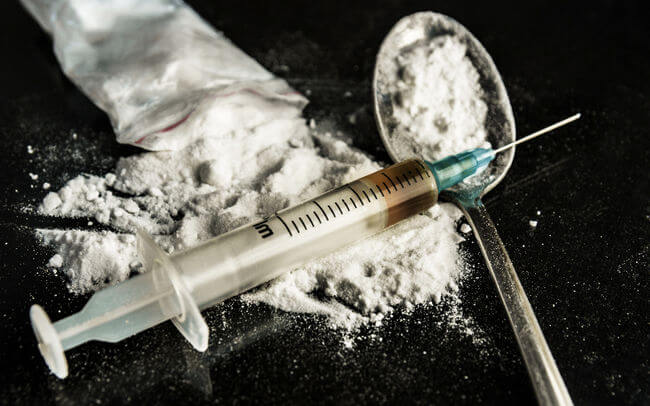theQuestion: Should hard drugs be legalized?*
Ends always justify the means for those striving to do good, no matter the cost to life, liberty and truth.
The truth about hard drugs, such as heroin, is blunt — it destroys lives and it kills. With each injection, intravenous drug users on the Downtown Eastside of Vancouver are slowly, sometimes quickly, killing themselves. I believe these people are well aware of this fact. How could they not? The risk of death is an ever-present danger that is impossible for any hard-drug user to ignore, let alone plead ignorance.
Long before the fentanyl overdose crisis hard-drug users have been dying on the streets and in alleyways and single-room social housing in our city. It is why, over a decade ago, the Lower Mainland became the first region in North America to open a safe-injection facility known as Insite — to help prevent overdoses.
This effort has been a complete failure. Instead of promoting abstinence, programs like Insite promote acceptance. Today, the overdose problem is dramatically worse and the same activists that gave us Insite are now agitating for decriminalization and eventual legalization of hard drugs. The insanity must stop. Say no to legal heroin.
A few facts: My Duel colleague draws harm reduction parallels between the use of the drug methadone as a replacement for opioids with the use of nicotine patches for cigarettes. The comparison is misleading. In the case of smoking and nicotine, it is the delivery system, the combustible cigarette, that kills. Not the nicotine. However, in the case of intravenous drug use, it is not the delivery system (i.e. syringe) that kills, transmittable disease aside, it is the drug that kills. The two are not equivalent.
Garth also cites the wonderful progress Portugal has made since the country decriminalized possession of all drugs in 2001. Here, too, the left’s penchant for manufacturing truth reveals itself. Absolute drug use in Portugal is up not down. According to the most recent data from the European Monitoring Centre for Drugs and Drug Addiction, the total amount of the percentage of people who have experimented with drugs at least once in their lifetime climbed 4.2% between 2001 to 2007. Almost every category went up: heroin from 0.7% to 1.1%; cocaine from 0.9% to 1.9%; amphetamines 0.5% to 0.9%. I could go on.
The hardest truth about hard-drug use is that it is a moral failing by the individual user — and by society when it seeks to normalize it.

